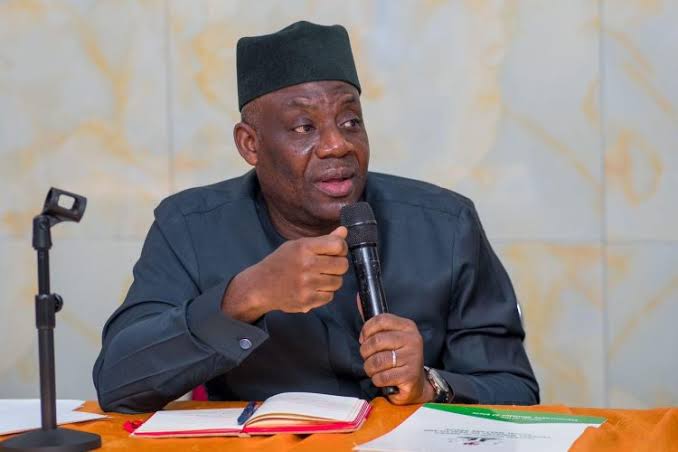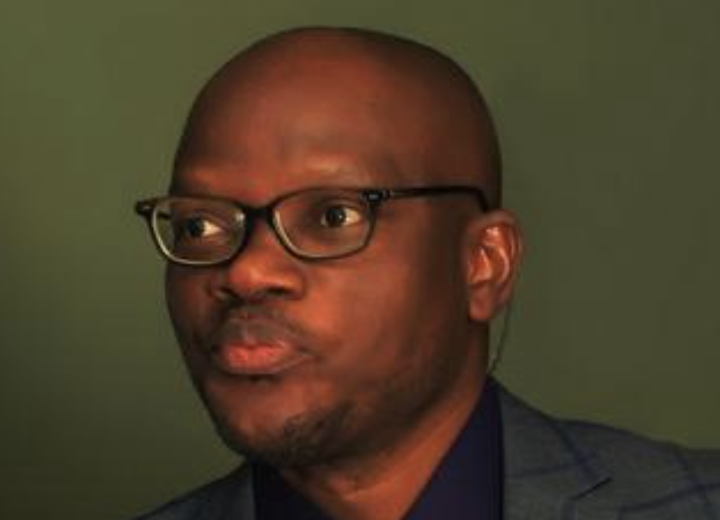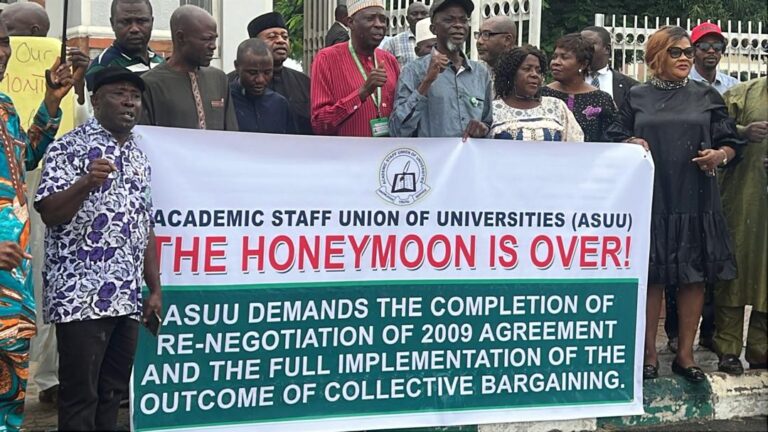Rising from an emergency NEC meeting on Saturday, and as a follow-up to its recent flurry of public engagements, ASUU has directed its branches nationwide to hold congresses concurrently on Thursday, to either affirm or reject the resolution to embark on an indefinite nationwide strike over unresolved demands by the Nigerian government, DevReporting writes.
Come Thursday, 11 September, branches of the Academic Staff Union of Universities (ASUU) nationwide will hold their congresses to approve or reject the call for an indefinite strike action by its National Executive Council (NEC).
ASUU’s NEC, comprising national executive officers, branch chairmen and women, and zonal leaders, is the second-highest decision-making organ of the union, after the national delegates’ conference.
While the NEC meets every two months, the delegate conference convenes only once in two years, primarily to conduct elections for the union’s national officers.
However, following an earlier meeting held in August at Usmanu Danfodiyo University, Sokoto, Northwest Nigeria, an emergency NEC meeting of the union was held at its national secretariat at the University of Abuja (Now Yakubu Gowon University) on Saturday, 6 September.
Sources confirmed that the meeting reviewed the outcome of the 28 August meeting with government representatives, led by the Minister of Education, Tunji Alausa, a medical doctor, which, for the umpteenth time, appraised the union’s demands and the agreement earlier reached with the government.
Mr Alausa had earlier assured Nigerians that under his watch, no union within the nation’s education sector would embark on strike, saying the commitment of his principal, President Bola Tinubu, to ensuring a peaceful atmosphere on the campuses cannot be doubted.
But in response, ASUU urged Nigerians to ignore the minister’s optimism, saying there are no signs of the government’s commitment to averting the impending strike action.
DevReporting had earlier exclusively interviewed the union’s National President, Chris Piwuna, a Professor of Medicine at the University of Jos, Plateau State, who expressed ASUU’s frustration over what he described as the government’s delayed tactics in addressing its demands.
ALSO READ: ASUU president blows hot, says honeymoon with Tinubu-led govt over
NEC meeting

After the ASUU meeting with the federal government on 28 August, the education minister, Mr Alausa, announced the efforts to address the union’s demands, even as he suggested that there was no existing agreement with ASUU until a counter proposal from the government to the Yayale Ahmed-led committee’s report is addressed.
The minister’s comment was reportedly misconstrued by the media, leading to reports of alleged attacks on the minister by concerned stakeholders. Though the ministry had instantly clarified the minister’s statement, the development had further driven a wedge between the union and the government.
Part of the resolutions at the meeting was the expansion of the Mr Ahmed-led committee to include representatives of other workers’ unions on the campuses, as the government insisted that the demands by almost all the unions were the same and should be treated together at the same time.
This action, DevReporting learnt, has angered the union, which claimed its agreement had been due for renegotiation since 2012, and that since 2017, when the government finally agreed to renegotiate, it has been one problem after another.
Unconvinced by the minister’s assurances, ASUU leadership resolved to seek permission from members nationwide to embark on an indefinite strike. It directed the branch leaders to return to their various campuses to organise the congresses and collate the resolutions for another NEC meeting, where the final decision would be made.
ALSO READ: This Nigerian graduate makes history in Law despite Science background. Here’s how
Congress notice
As of Tuesday, many branches of the union had issued notices for congress on Thursday, urging members to attend en masse.
Some of the copies of such notices obtained by DevReporting listed items on the agenda to include: report from NEC meeting, referendum, and AOB.
The referendum will either affirm or reject the call for industrial action by the union.
A senior member of the union from one of the campuses, who does not want to be quoted, said the signs are clear that the lecturers would vote massively for the strike to commence.
“The Tinubu-led administration may have overstretched its luck. It is no longer time for tokenism despite the amount of hardship we have been thrown into. The currency devaluation is a major problem; what the government sees is not real money but money illusion. Whatever they realised from the subsidy has been ridiculed by the devaluation, and since there is no accountability, they keep spending on frivolities while the goose that laid the golden eggs keeps wallowing in poverty,” the source said.
Meanwhile, efforts to get the reaction of the union’s national president, Mr Piwuna, were unsuccessful as he only tersely replied to our reporter to call back when a call was made to his phone.

He has not replied to messages sent to his mobile line. Other union leaders are also keeping mute on the matter, signalling their resolve to get their members’ buy-in.
ASUU’s demands
The union’s demands include renegotiation of the 2009 ASUU-FGN agreement, sustainable funding of Nigerian universities, revitalisation of the university system, payment of the outstanding 25-35 per cent salary arrears, and payment of accumulated unremitted third-party deductions from the members’ salaries, among others.
The union had engaged in massive media campaigns within the last four weeks to sensitise the public over its plight and sought interventions from eminent Nigerians to appeal to the government to avert the impending strike.

